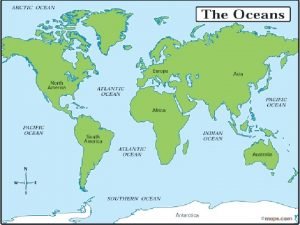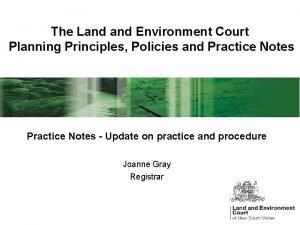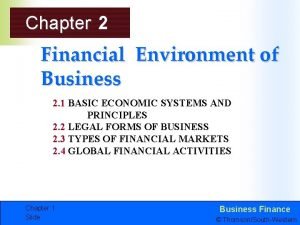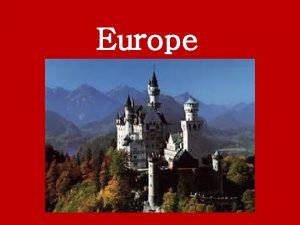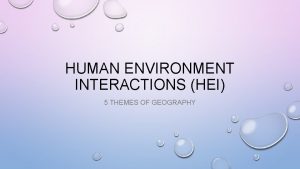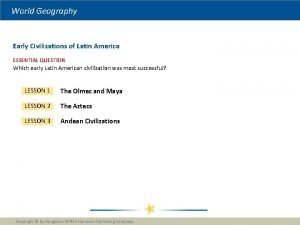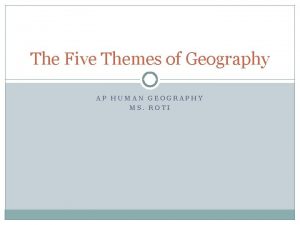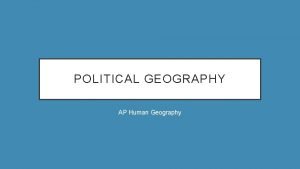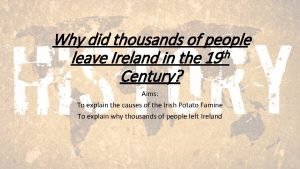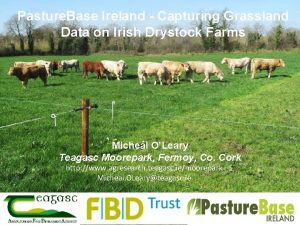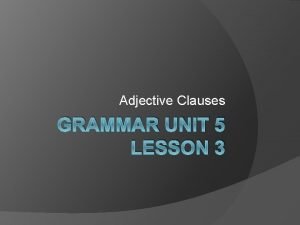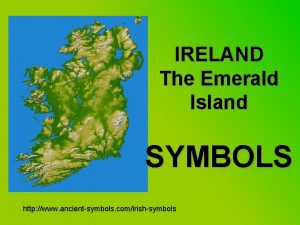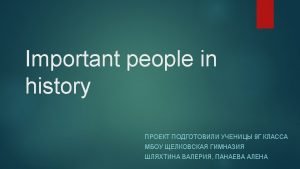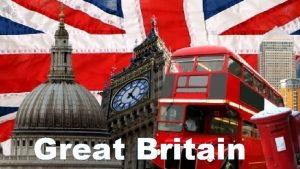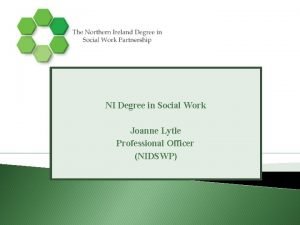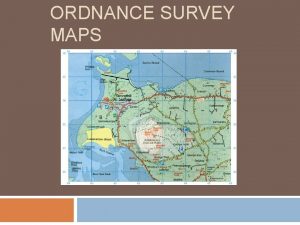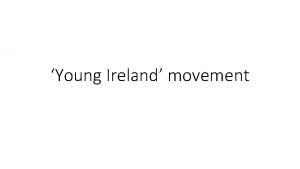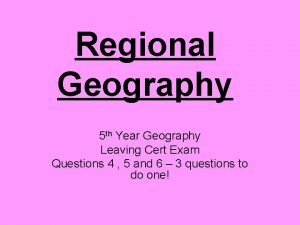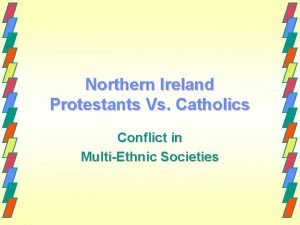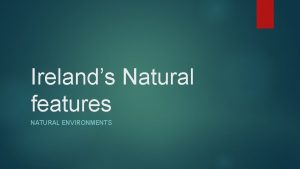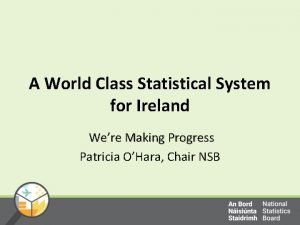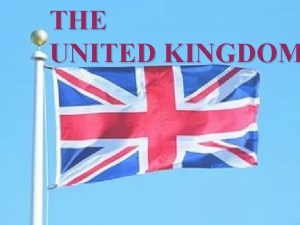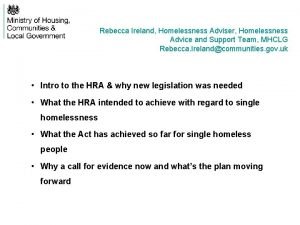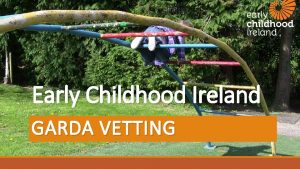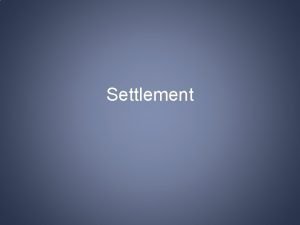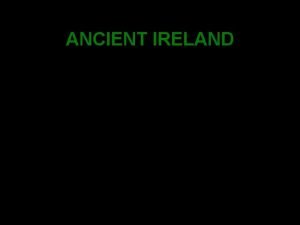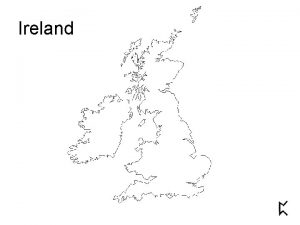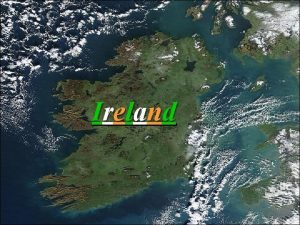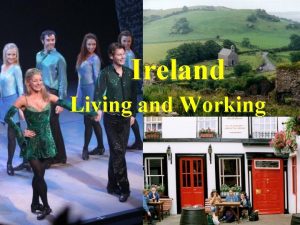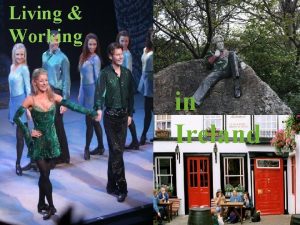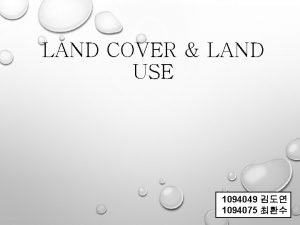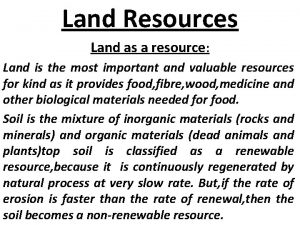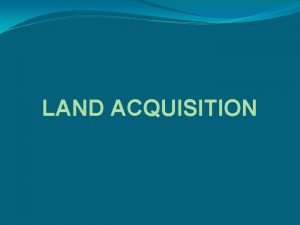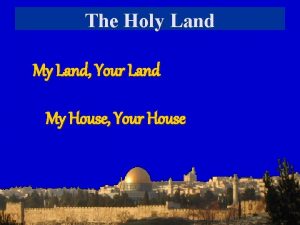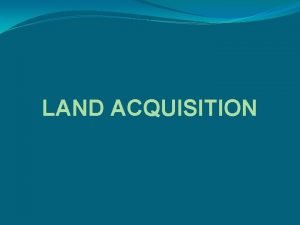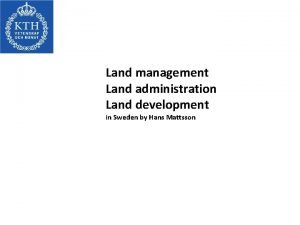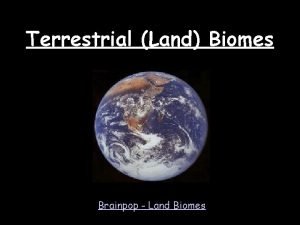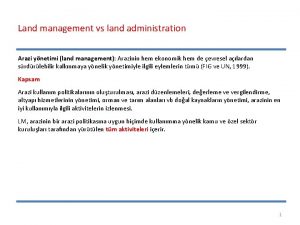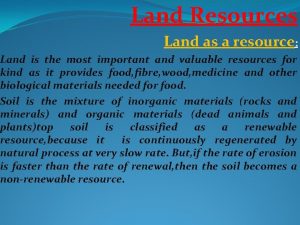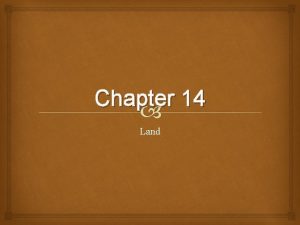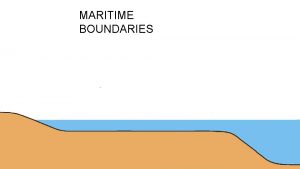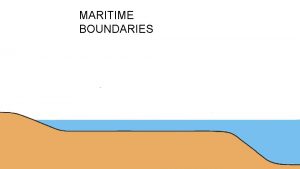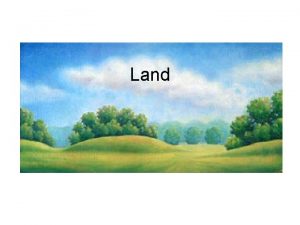Ireland Geography Land Environment Where is it Ireland
































- Slides: 32

Ireland Geography, Land Environment

Where is it? • Ireland is a country in North Western Europe next to the UK. • It is about the same size as Ningxia province in China. • Ireland is an independent country, whereas Northern Ireland is a part of the UK. • Ireland is about five times the size of Northern Ireland.

Map of Europe

• To the East of Ireland is the Irish sea, which separates Ireland from England. • To the West is the Atlantic Ocean, which is nearly empty of land until you get to America. • The capital city of Ireland is Dublin, which is on the East coast facing the Irish Sea. • Dublin is about as far North as the most Northern point of China.

Map of Ireland

What’s it Like? • The weather in Ireland is mild, it does not get very hot or cold there. • The temperature in summer does not get much above 20 degrees, and in winter it only rarely drops below zero. • Compared with other parts of the world which are that far north, it is quite warm. • For example Northern China is at about the same latitude, and in winter can go far below zero.

What’s it like? (cont’d) • Ireland’s mild weather is due to water currents in the Atlantic Ocean. • The Gulf Stream is a current which flows up along the coast of America, then across the Atlantic Ocean, carrying warmer waters towards Ireland. • This affects the weather on the land, making it hotter there, and keeping it at a more steady temperature.

Atlantic Ocean Streams

What’s it Like (cont’d) • The middle of Ireland is mostly flat with mountains near the coast. • The land is mostly farmland, with very little natural forest remaining, as the Ireland has been heavily farmed for hundreds of years. • The forests have been cut down for timber, or cleared for farming, and the large amount of farming has damaged the environment, so pollution is now a problem in many parts of Ireland.

Coastal Cliffs in Ireland

History of Ireland • During the last Ice Age, from about 30, 000 years ago to about 14, 000 years ago, Ireland was covered in ice. • The sea level during this time was lower than it is now, and so Ireland Britain were joined to the Europe. • As the planet warmed up and the ice started to disappear, the sea level rose and cut off Ireland from the rest of Europe.

History (cont’d) • The first people crossed to Ireland in around 7, 000 BC, and they were hunter/gatherers from Northern Britain, where Scotland is now. • They hunted animals with tools made from stone, like arrows and spears with flint heads, and lived in huts made from animal skins. • They lived mainly on the shores of lakes, rivers or seas.

History (cont’d) • Around 3000 BC, people started arriving in Ireland who knew about farming. • Farming was a better way of providing food, so these people had the chance to build better houses, and to improve their way of life. • Instead of moving around like the hunter/gatherers, they built permanent houses and lived on their farms.

Type of house lived in 3000 BC

History (cont’d) • They cleared away trees by cutting them down with their stone axes, or by burning them, to make room for their farms. • They planted crops like wheat and barley, and raised animals like pigs and cows. • At this time a new type of rock was discovered by the farmers which was better than flint for making tools. • These people also built tombs for their dead which can still be seen today.

Ancient building

History (cont’d) • Around 2000 BC, the skills to make things out of metal were brought to Ireland from Europe, and better tools and weapons could be developed made of bronze. • More of the forests in Ireland were cut down during this time, and the areas without trees turned into swamps, called ‘peat bogs’. • Everything changed in about 500 BC when the Celts started to arrive in Ireland.

Celtic Influence on Europe

The Celts • The Celtic people were from central Europe, and their culture and language spread out across Europe, taking over Ireland from about 500 BC. • They had better weapons and tools than the people before them, because they had the skill of making things out of iron. • Their society was based around the tribe, and they had a well-developed legal system.

The Celts • The culture of the Celts had a lot to do with war, and Ireland was divided up into many small parts, with a different Celtic king ruling each one. • The warriors in each tribe were the rulers, and fought from chariots, which were twowheeled wooden carts pulled by horses.

Celtic chariot

The Celts (cont’d) • Aside from the warriors, in Celtic society the blacksmiths, poets and druids were very important. • The blacksmiths were important because they made the weapons that the warriors fought with, the poets were important because they created the stories about the warriors that told of their battles, and the druids were important because they were the priests, and told the future.

The Celts (cont’d) • The Celts were in charge of Ireland when the Roman Empire was at its height, and even though the Romans controlled part of Britain, they did not try to invade Ireland. • The North of Britain was also inhabited by a Celtic people called the Picts, and the Roman Emperor of the time, called Hadrian, built a wall across the middle of Britain to keep them in the North (which would later be Scotland).

Christianity in Ireland • Around the year 300, Christianity came into Ireland. • St. Patrick was not the first Christian to try to turn the Celts towards Christianity, but he was the most successful. • St. Patrick was from Northern England, and when he was 16, he was captured by Celts who were attacking the part of Britain ruled by the Romans.

Christianity in Ireland • He was taken back to Ireland, but after 6 years of being held prisoner, he escaped, and walked 300 kilometers to the coast, where he got on a ship to France. • He trained as a priest, then returned to Ireland to convert the Celts to Christianity. • He was very successful, and Ireland became Christian, and St Patrick’s day is still celebrated by Irish people to remember him.

Christianity in Ireland • There were many small churches formed in Ireland, and also many monasteries. • A monastery is a place for men to go to work for the church as monks. • In the monasteries, the monks would lead very quiet lives of study and religion, helping the people, and also writing books on religious matters, usually in the latin language instead of Celtic.

The Vikings • The Vikings were a group of people living in Denmark and Norway, and many of them set out in their ships to find new lands, because their own land was getting crowded. • They sailed strange looking ships, and were very warlike, but they also made homes in many places, and formed towns. • From about the year 800, they started to attack Ireland, and sometimes stayed to live.

Viking Longboat

Europe

The Vikings • Many of the Vikings attacked the Christian monasteries in Ireland, because the monks there often collected many valuable things, and also had large food stores. • The monks had to find ways of defending against the Vikings, so they built tall towers to hide in when the Vikings came, with the door up high in the air, so you could only get to it by a ladder.


The Normans • In 1167, the Normans arrived in Ireland, and took over. • The Normans were people from Normandy, which is in France, and were descendants of the Vikings. • They had invaded and beaten Britain in 1066, and their land grew to include Ireland.
 Identifying landforms
Identifying landforms What are landforms
What are landforms Land and environment court planning principles
Land and environment court planning principles Financial environment of business
Financial environment of business Mixed land use ap human geography definition
Mixed land use ap human geography definition Weber's least cost theory ap human geography
Weber's least cost theory ap human geography Settlements geography grade 12
Settlements geography grade 12 Hei geography definition
Hei geography definition Olmec geography/environment
Olmec geography/environment How to write an frq for ap human geography
How to write an frq for ap human geography 5 themes of geography ap human geography
5 themes of geography ap human geography Proruption ap human geography
Proruption ap human geography Why did people leave ireland
Why did people leave ireland Invisible imports ireland examples
Invisible imports ireland examples Pasture base ireland
Pasture base ireland What is a restrictive clause
What is a restrictive clause Famous symbols of ireland
Famous symbols of ireland Elizabeth 1 ireland
Elizabeth 1 ireland 4 parts of great britain
4 parts of great britain Northern ireland social work degree partnership
Northern ireland social work degree partnership Ordnance survey map symbols ireland
Ordnance survey map symbols ireland Soil types in ireland
Soil types in ireland Young ireland movement
Young ireland movement Chinese companies in ireland
Chinese companies in ireland Sketch map of ireland leaving cert
Sketch map of ireland leaving cert Northern ireland population catholic protestant
Northern ireland population catholic protestant Natural features of ireland
Natural features of ireland Motorcycling ireland
Motorcycling ireland Ogcio ireland
Ogcio ireland Northern ireland capital
Northern ireland capital Rebecca ireland
Rebecca ireland Garda vetting form early childhood ireland
Garda vetting form early childhood ireland Where did the normans settle in ireland
Where did the normans settle in ireland

